International science fiction competition “Quantum Shorts” launches today
Singapore’s Centre for Quantum Technology (CQT), with support from the ARC Centre of Excellence for Engineered Quantum Systems (EQuS), has today launched “Quantum Shorts”, a quantum-themed ‘flash fiction’ competition that asks aspiring writers for short stories no more than 1000 words inspired by quantum physics.
Artur Ekert, Director of the Centre for Quantum Technology (CQT) and co-inventor of quantum cryptography said that the quantum world offers lots of scope for enthralling characters and mind-blowing plot twists.
“A writer has plenty to play with when science allows things to be in two places - or even two universes - at once,” he said. “The result might be funny, tense or even confusing. But it certainly won’t be boring.”
Gerard Milburn, Director of the ARC Centre of Excellence for Engineered Quantum Systems said that EQuS is delighted to provide support as a scientific partner for Quantum Shorts.
“The quantum world can appear to be a bottomless cup of mystery and paradox. I encourage writers to explore it and look forward to some remarkable short stories.”
Scientific American, the longest continuously published magazine in the U.S., Nature, the world’s leading multidisciplinary science journal, and Tor Books, the leading science fiction and fantasy publisher, are media partners for the contest.
Scientific American Editor in Chief and competition judge Mariette DiChristina said, "Quantum physics seems to inspire creative minds, so we can’t wait to see what this year’s contest will bring."
A panel of judges will select the winners and runner-ups in two categories: Open and Youth. The public will also vote and decide the People's Choice Prize from entries shortlisted across both categories. Winners will receive a trophy, a cash prize and a one-year digital subscription to ScientificAmerican.com. The winner of the Open category will also be featured on ScientificAmerican.com.
The 2015 Quantum Shorts contest is supported by scientific partners around the world. The scientific partners are the ARC Centre of Excellence for Engineered Quantum Systems (EQuS), the Institute for Quantum Computing at the University of Waterloo, the Institute for Quantum Information and Matter at Caltech and the Joint Quantum Institute, a research partnership between University of Maryland and the National Institute of Standards and Technology.
Entries can be submitted now through 11:59:59 PM ET on December 1, 2015 at shorts.quantumlah.org. Submissions to Quantum Shorts 2015 are limited to 1000 words and can be entered into the Quantum Shorts competition via the website, which also features a full set of rules and guidelines.
For more information, please visit the competition website at http://shorts.quantumlah.org.
Major funding support

The Australian Research Council Centre of Excellence for Engineered Quantum Systems (EQUS) acknowledges the Traditional Owners of Country throughout Australia and their continuing connection to lands, waters and communities. We pay our respects to Aboriginal and Torres Strait Islander cultures and to Elders past and present.


